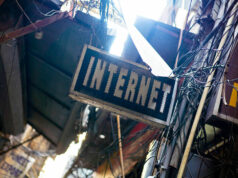Rural power cooperatives wanted to tap electrification funds under the Energy Regulation (ER) 1-94 to allow them to further subsidize electricity costs for poor customers affected by the enhanced community quarantine (ECQ), after the Energy department ordered the redirection of the funds to help the government in its fight against the coronavirus disease 2019 (COVID-19) pandemic.
Complying with the Bayanihan to Heal as One Law, the Department of Energy (DoE) ordered the use of all available and unremitted ER 1-94 funds to aid local government units (LGU) in providing relief for those affected, as well as those in the frontline in the fight against the disease pandemic.
In a statement on Thursday, the Philippine Rural Electric Cooperatives Association Inc. (Philreca) hoped for electric cooperatives (EC) to use the electrification funds to add in their initiative to cover electricity bills of over 3 million poor consumers in the countryside.
“We hope that distribution utilities will be given access to this Electrification Fund as they have already available records, network, manpower to implement a project for the member-consumer-owners in the host communities – even if they are remitted to LGUs – and allow them to subsidize the electricity bills of marginalized groups in the EC’s franchise area,” the group said.
ER 1-94 sets aside for power plant host communities a one centavo per kilowatt-hour (kWh) take from total electricity sales.
The DoE order would allow LGUs to use the funds to buy medical equipment, providing special risk allowance to health workers and facilitate mass testing, among other COVID-19 response projects allowed by the DoE.
Philreca recently launched its Pantawid Liwanag program that seeks to provide poor households consuming 20 kWh of electricity or below with subsidies for their electricity costs. A total of 86 ECs have committed to implement this program in their franchise areas.
The group clarified that it targets to help out those customers they categorized as “lifeline consumers” or those people who live below the poverty line and use electricity not exceeding 50 kWh. It also aimed to aid those with regular income but have difficulty in paying their electricity bills.
ECs plan to waive their bills falling from the March 26 to April 25 period.
It noted that more than half of the 121 ECs across the country have already allocated over P118 million for their coverage areas.
To fund this program, ECs have realigned their budgets from canceled activities, such as annual general membership assemblies and district election of directors.
Philreca repeated its call to the Inter-agency Task Force (IATF) on Emerging Infectious Diseases to add electricity bills subsidies to the list of benefits under the social amelioration program of the Department of Social Welfare and Development.
“[W]e hope that the IATF would still consider our appeal for the government to provide financial assistance to marginalized consumers through the electric cooperatives as this would certainly augment the limited capability and funds of the coops,” it said.
Meanwhile, Philreca also appealed for their power supply agreements with generation firms to be relaxed, including those rules on minimum contracted capacity and other fixed costs, such as capital recovery fee and minimum energy off-take charges, as they cannot fully utilize the contracted capacity this time.
Power cooperatives also wished for their payments of dues and obligations to be extended up until such time they can return to normal and stable operations, not just up to 30 days from the end of the ECQ as prescribed by the Energy Regulatory Commission (ERC).
They also hoped to avail prompt payment discounts despite payments of bills are recently ordered by the ERC to be extended and paid in portions in the next four billing periods. — Adam J. Ang



